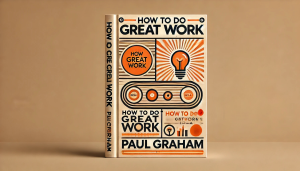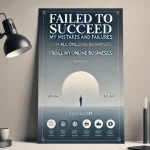What makes all these successful S&P 500 tech giants so successful? “Being a Monopoly” argues Peter Thiel.
As a thirsty individual for learning about self improvement, tech, business, and entrepreneurship the book “Zero to One” by Peter Thiel was my no. 1 go to.
The Author
I normally don’t really discuss about authors in my book reviews. Nevertheless Peter Thiel’s career deserves to be an exception.
Peter Thiel—unlike other authors, whose books I’ve read so far—has big businesses, yet businesses separate than his book.
He co-founded PayPal and Palantir Technologies, invested in Facebook in the early stage (bought over 10% of shares) which all generated him billions, making him a billionaire with a current net worth of 10$ billion.
So, I think we can be confident calling him a true entrepreneur and businessman instead of an author who makes a living out of books.
Since there is a fact like “the best books are from non-authors” and the book was about starting a successful business, I’ve grabbed it with excitement and read just in five days.
In this blog article we will discuss the main takeaway’s of the book and give Thiel’s formula to start and grow a business successfully.
The main essence of the book is: “Your company has to go from 0 to 1, not 1 to n, innovate something new and become a Monopoly, dominating a (small) market.” Thiel’s message: “your company has to achieve a monopoly.“ sounds very controversial and strange at first. But after his clarification about what he actually means by that, it make much more sense:
“Because to reach the state of being a monopolist, you have to create something utterly new, something that can’t be copied. You have to go from zero to one.“
The book starts with breaking progress into two types: horizontal progress and vertical progress.
Horizontal progress represents improving and copying already existing concepts, mathematically expressed: going 1 to n. The greatest driver of horizontal progress is globalization, Thiel expresses.
Vertical progress however, means inventing new concepts, making innovation and going from 0 to 1, which obviously is much more challenging than the horizontal progress.
Your startup has to achieve vertical progress, invent and innovate; go from 0 to 1, Thiel emphasizes. Yet the single way to achieve it is mastering a single subject, because it is about to have a one best feature, one niche and one visionary product as a startup.
Monopolies vs. Competitive Businesses
The author gives two examples for these two progress types: Google (as a Monopoly) and airline companies (as businesses in competition). Google drives innovations, make new inventions and goes from 0 to 1, whereas airline companies copy each other and brutally compete till no one wins (in 2008 was the profit per customer/flight about 37 Cents).
With this argument the author introduces the benefits of monopolies for society but also for future and argues that monopolies drive much more innovation than competitive businesses, against all dogmas.
First of all, since monopolies do not have any doubts about financials, they have the privilege to invest in innovations, whereas competitive businesses must actively combat bankruptcy risks, often prioritizing maximum profit with minimal effort over employee satisfaction, ethics, innovation, and societal contribution: “and this is why the grandma at the checkout counter and kids in the kitchen washing dishes”, Thiel underlines. So is Monopoly the evil one?
In a static world where nothing changes the accusations about Monopolies being selfish and evil would be correct, since their initial goal would be to accumulate all the existing resources, like in the board game Monopoly.
But since we live in a dynamic world, where inventions can be made and innovations must be driven, monopolies play a significant role in improving our society.
Moreover, other startups that want to get into the market and compete against monopolies have to progress vertically—either create sth. new or innovate to outwork the monopoly, without an innovation they won’t survive.
Monopolies eliminate the competition too where no one wins.
To sum it up:
“Monopoly means new products that benefit everybody and sustainable profits for the creator. Competition means no profits for anybody, no meaningful differentiation, and a struggle for survival.“
Monopoly Criteria
“Monopoly is therefore not a pathology or an exception. Monopoly is the condition of every successful business.” Thiel argues. The following factors determine what constitutes a monopoly:
- Tech Advantages—hard to copy, at least 10x better than anyone else’s
- Network Effects—the more people use, the more useful the product
- Economies of Scale—the potential for great scale
- Strong and non-replicatable Bonds—strong branding
1. Tech Advantages
If your business do not have a 10x better tech than it’s competitors, it will appear as a marginal improvement and be easy for your competitors or other new startups to copy your work which won’t allow your business to become a monopoly. You’ll struggle to stand out and sell your product, particularly if you are in an already crowded market.
2. Network Effects
For strong network effects, you have to start with a small market. Take Facebook as instance, which started with only Harvard Students.
3. Economies of Scale
A good startup should have the potential for great scale built into its first design.
Many businesses gain only limited advantages as they grow to large scale. Service businesses especially are difficult to make monopolies. If you own a yoga studio, for example, you’ll only be able to serve a certain number of customers. You can hire more instructors and expand to more locations, but your margins will remain fairly low and you’ll never reach a point where a core group of talented people can provide something of value to millions of separate clients, as software engineers are able to do. (p. 51)
4. Branding
What do you think of as someone asks you: “Are you also an Apple fan?” The fruit? Or the tech giant? Well, we call it: strong branding.
A company has a monopoly on its own brand by definition, so creating a strong brand is a powerful way to claim a monopoly. Today’s strongest tech brand is Apple: the attractive looks and carefully chosen materials of products like the iPhone and MacBook, the Apple Stores’ sleek minimalist design and close control over the consumer experience, the omnipresent advertising campaigns, the price positioning as a maker of premium goods, and the lingering nimbus of Steve Jobs’s personal charisma all contribute to a perception that Apple offers products so good as to constitute a category of their own.
Market!
The most crucial strategy at the beginning is what (small) market you choose. Dominate a large share of a small market:
Brand, scale, network effects, and technology in some combination define a monopoly; but to get them to work, you need to choose your market carefully and expand deliberately.
Every startup is small at the start. Every monopoly dominates a large share of its market. Therefore, every startup should start with a very small market.
The perfect target market for a startup is a small group of particular people concentrated together and served by few or no competitors.
Startup to Monopoly
In order to become a monopoly as a startup you need to have these 5 concepts:
- A Vision
- A Secret
- Persistence
- A Strong Culture
- An Outstanding Sales Strategy
1. You need a Vision
You need originality, uniqueness, a soul in your company. A Vision. But this can’t be acquired from business handbooks, it lies in oneself.
Think about Apple and Steve Jobs: As Apple grew, they hired more people—more professionals, managers, salesmen, business people. After Steve Jobs was kicked out from his own company, Apple was missing that unique soul while being full of formal people. After Steve Jobs returned on 1997 before an upcoming bankruptcy of Apple, the company skyrocketed with iPod (2001), iPhone (2007) and iPad (2010) and became the strongest tech brand to ever exist.
If you doubt or struggle to identify your uniqueness, your originality you can have a look at Mastery 101.
2. You need a Secret
Vertical Progress is challenging. It even feels like there isn’t any new concept to invent or innovate, “everything has already been done”, which is not true.
There are things that are important but nobody knows about. You have to find the secrets of the future. Vertical progress means finding secrets.
3. You need Persistence
It can take years to make profit. You need to be prepared to stick around. Find your market as narrowed and specific as possible (like Jeffrey from Amazon who started just with Books) and stay persistent.
4. You need a strong culture
Everybody in a startup plays an important role. It’s not only the vision and skills that make a startups value, but also the personal connections. Everyone must be well connected.
Your startup needs a strong culture.
5. An Outstanding Sales Strategy
You need good distribution, analyzing potential of each client before investing in them, thinking about selling more in terms of “How can I build strong relationships with my clients? How can I reach my customers?”
Marketing strategies vary from product to product, so experiment what suits your best: viral marketing, traditional advertising, digital marketing, content marketing?
It’s better to think of distribution as something essential to the design of your product. If you’ve invented something new but you haven’t invented an effective way to sell it, you have a bad business—no matter how good the product.
But start small and expand. Don’t pour your money into one basket.
The Formula
Ultimately, the formula for starting and growing a successful business is to become a monopoly, and to achieve that, you need to answer the following questions with “yes”:
1. The Engineering Question
Can you create breakthrough technology instead of incremental improvements?
2. The Timing Question
Is now the right time to start your particular business?
3. The Monopoly Question
Are you starting with a big share of a small market?
4. The People Question
Do you have the right team, the right partnerships?
5. The Distribution Question
Do you have a way to not just create but deliver your product?
6. The Durability Question
Will your market position be defensible 10 and 20 years into the future?
7. The Secret Question
Have you identified a unique opportunity that others don’t see?
Whatever your industry, any great business plan must address every one of them. If you don’t have good answers to these questions, you’ll run into lots of “bad luck” and your business will fail. If you nail all seven, you’ll master fortune and succeed. Even getting five or six correct might work. (p. 146-147)
All in all, you have to achieve a Monopoly with your startup, go from 0 to 1, possess a vision, a secret, persistence, a strong culture and a strong sales strategy.
After you have reach the stage of being a monopoly you will have a 10x better tech than your closest competitor, strong network effects, a rapid scale as well as a strong brand, which all lead you to drive more innovation, make more inventions and grow as a monopoly.
In order to reach that stage you will need to answer (ideally) all the questions above with “yes”.







